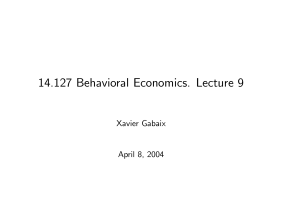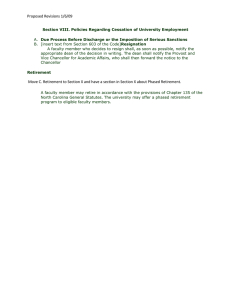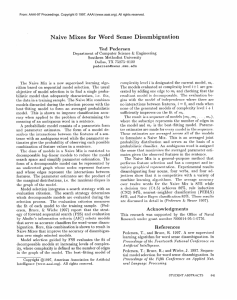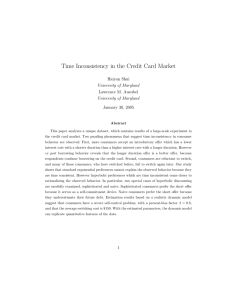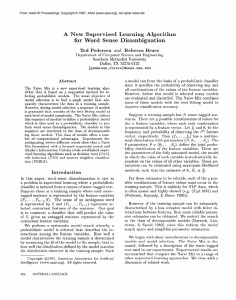1 Procrastination
advertisement
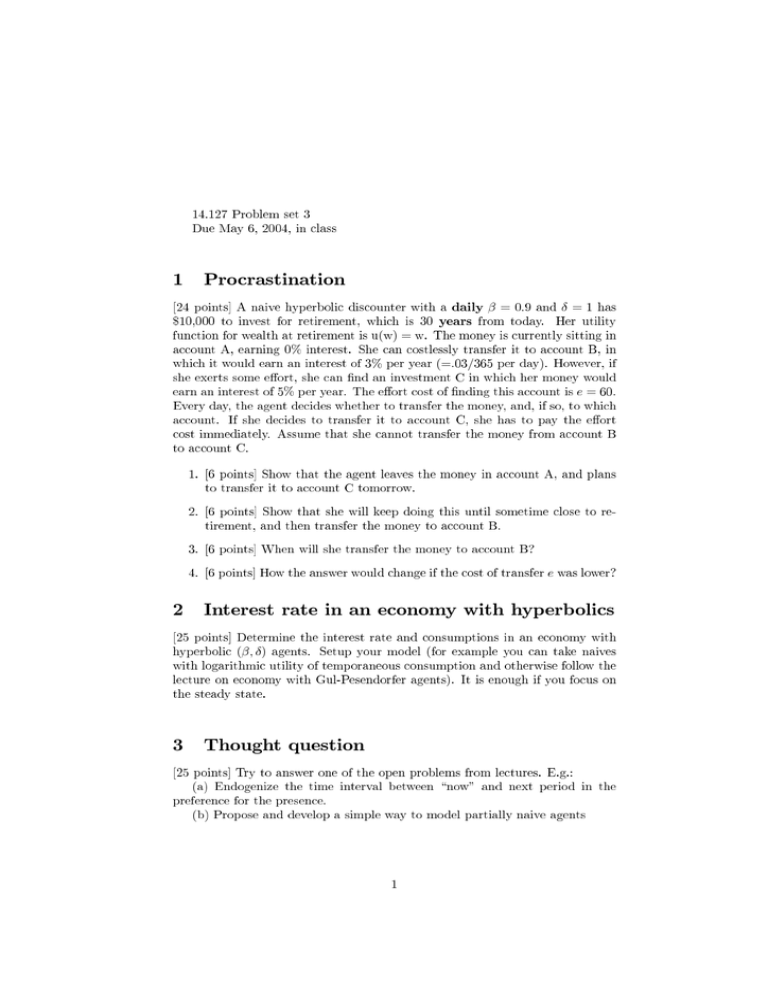
14.127 Problem set 3 Due May 6, 2004, in class 1 Procrastination [24 points] A naive hyperbolic discounter with a daily β = 0.9 and δ = 1 has $10,000 to invest for retirement, which is 30 years from today. Her utility function for wealth at retirement is u(w) = w. The money is currently sitting in account A, earning 0% interest. She can costlessly transfer it to account B, in which it would earn an interest of 3% per year (=.03/365 per day). However, if she exerts some effort, she can find an investment C in which her money would earn an interest of 5% per year. The effort cost of finding this account is e = 60. Every day, the agent decides whether to transfer the money, and, if so, to which account. If she decides to transfer it to account C, she has to pay the effort cost immediately. Assume that she cannot transfer the money from account B to account C. 1. [6 points] Show that the agent leaves the money in account A, and plans to transfer it to account C tomorrow. 2. [6 points] Show that she will keep doing this until sometime close to retirement, and then transfer the money to account B. 3. [6 points] When will she transfer the money to account B? 4. [6 points] How the answer would change if the cost of transfer e was lower? 2 Interest rate in an economy with hyperbolics [25 points] Determine the interest rate and consumptions in an economy with hyperbolic (β, δ) agents. Setup your model (for example you can take naives with logarithmic utility of temporaneous consumption and otherwise follow the lecture on economy with Gul-Pesendorfer agents). It is enough if you focus on the steady state. 3 Thought question [25 points] Try to answer one of the open problems from lectures. E.g.: (a) Endogenize the time interval between “now” and next period in the preference for the presence. (b) Propose and develop a simple way to model partially naive agents 1

